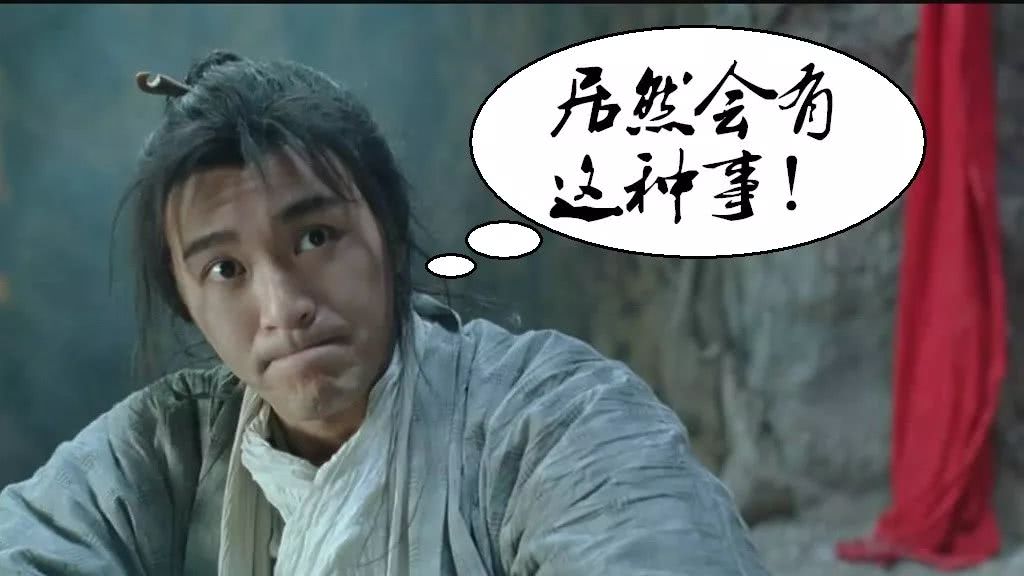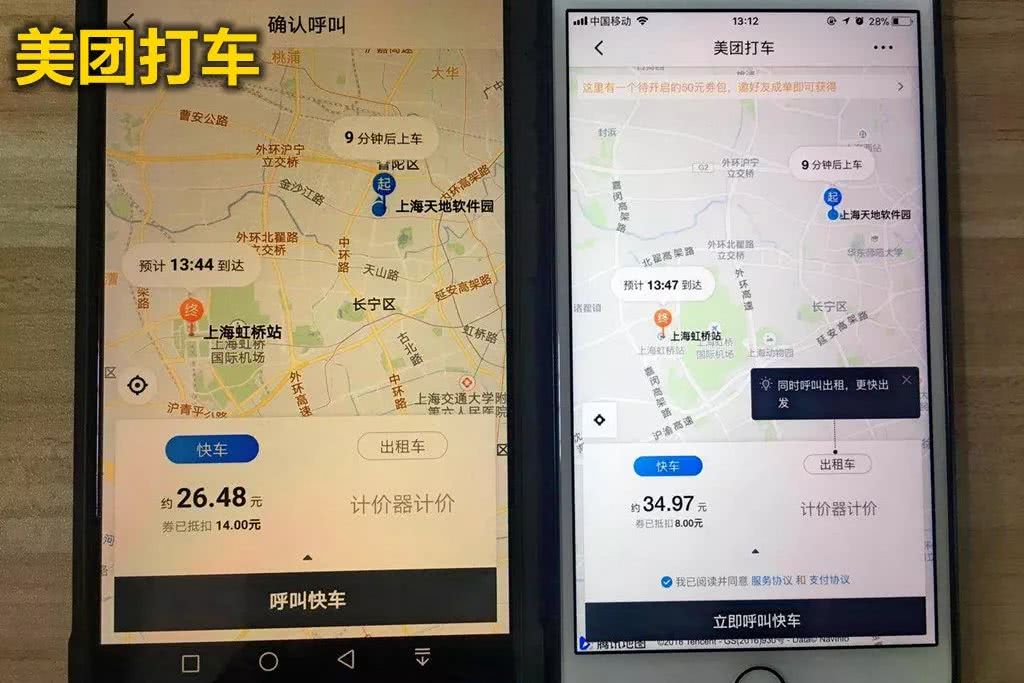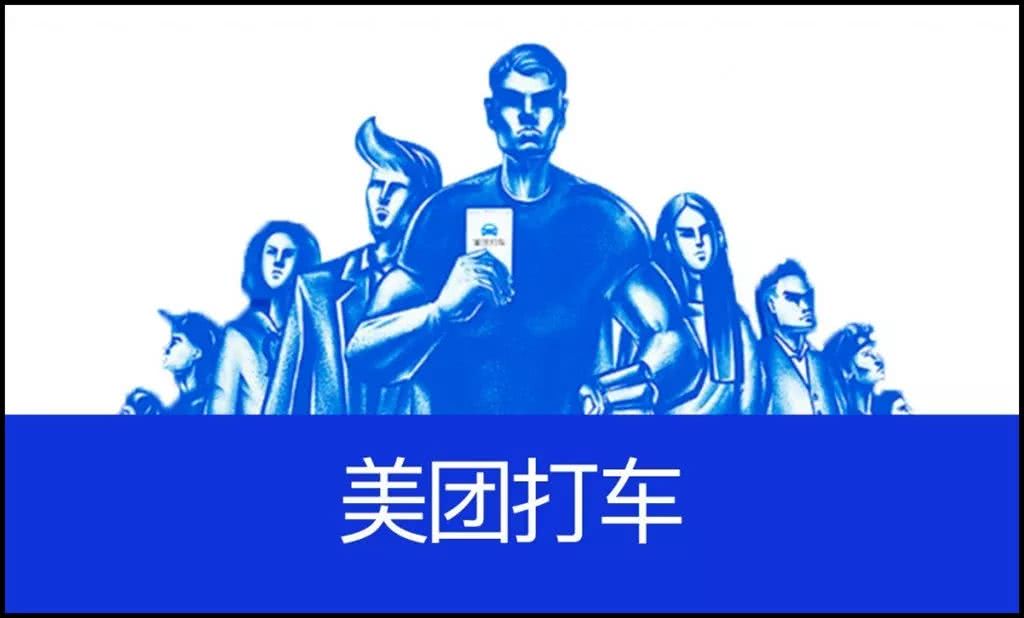
After reading this article, you will understand why the world is so dark.
Recently, Meituan and Didi had a wonderful fight in Shanghai… However, some netizens on the Internet began to complain that Meituan taxi has no advantage over Didi in terms of price, and when different consumers call a taxi through Meituan, there are serious differences in the treatment of different prices for the same journey, which makes netizens cry unfair!

In response to this statement, Convex Jun decided to conduct an experiment in the office…
It is not difficult to see from the figure below that different consumers choose the same route at the same time, and the price difference of Didi is 1.4 yuan. The price difference of Meituan taxi is even more outrageous, with a price difference of nearly 8.49 yuan. In addition, Meituan’s highest price of taxi is 34.97 yuan, which is 3.27 yuan more than Didi’s highest price of 31.7 yuan…

Why does this happen?
Therefore, we interviewed Mr. Gong Li, a veteran in the online car-hailing industry. According to Mr. Gong,Whether it is Meituan Taxi or Didi, there is a unique big data pricing system. This system uses "reserved price and consumer surplus" as the big data pricing principle. This set of principles completes the final pricing according to the four dimensions of cost, supply and demand, consumption power and consumption habits.
To put it simply, a bottle of water sells for 2 yuan. For rich people, they don’t care about spending 5 yuan to buy a bottle of water. Similarly, for a person who has just come out of the desert and is half thirsty, he is even willing to spend 100 yuan to buy this bottle of water. For a person who has just finished drinking water at home, even if the price of this bottle of water is reduced to 1 yuan, he may not have the intention to buy it. Consumption ability and consumption willingness jointly determine different groups of people, and the consumption price will be deviated.

This means that if a consumer who regularly uses Meituan for a ride or Didi, the online car-hailing big data will define him as a high-quality customer willing to pay, thus giving a higher price for a ride.
This is like an auction. In the car water Ma Long, every consumer is actually a buyer, and every time they place an order, they "raise a sign", but big data has already understood the psychological price that each auctioneer is willing to bear, while buyers are in the dark about it.

One of the most realistic scenarios is: Xiao Ming left the company very late after working overtime, took out his mobile phone and called for an online car-hailing. As a result, the big data background of the online car-hailing found that there was only one available for dispatch within 5 kilometers. At the same time, Xiao Ming’s car mileage is actually not long, and it is estimated that the driver is not willing to accept such a small order… So the big data background made a decision, on the basis of the standard price of 15 yuan, rose 30 yuan, and quoted Xiao Ming at 45 yuan. As a result, Xiao Ming found that the price was ridiculously high, hesitated for a while, cancelled the order, and walked or rode a shared bicycle home. At this time, the system again determined that this quotation had exceeded the psychological price that Xiao Ming was willing to bear.
After a few days, Xiao Ming worked overtime again, and after get off work, he took out his mobile phone to summon a car from the Internet. At this time, although there was still only one available online car within a 5-kilometer radius, the floating price quoted by the system would not be so high. The quotation was only 15 yuan, so Xiao Ming happily accepted the offer of 30 yuan.
After a few days, Xiao Ming called a car at the same place at the same time period, and the system would quietly float the quotation and make a deal at 32 yuan… After that, every time Xiao Ming called a car at the same place at the same time period, the system would float the quotation little by little, 34 yuan, 36 yuan, 38 yuan, 39 yuan… Finally, one day, when the quotation exceeded 40 yuan, Xiao Ming cancelled the order again. At this time, the system understood that 39 yuan was Xiao Ming’s psychological price. From then on, Xiao Ming’s overtime fee for calling a car home was fixed at 39 yuan.

This is the most fundamental principle of the online car-hailing platform using big data to "kill". Someone asked, according to this principle, if you have nothing to do every day, you can order a car on the online car-hailing APP, and then cancel the order when the system quotes, and in the long run, the system will reduce its own quotation. It sounds very reasonable, but the problem is that the programmer’s IQ is not low.
Getting back to the original topic – as for why Meituan’s differentiated quotation for taxis is so much worse than Didi’s, it is actually because Meituan’s big data base is not as good as Didi’s. The larger the big data base and the longer the duration, the more accurate the differentiated quotation for consumer behavior. But in any case, it is actually an ethical issue for companies to formulate differentiated quotations for different consumers through big data analytics based on the principle of "reserved price and consumer surplus".